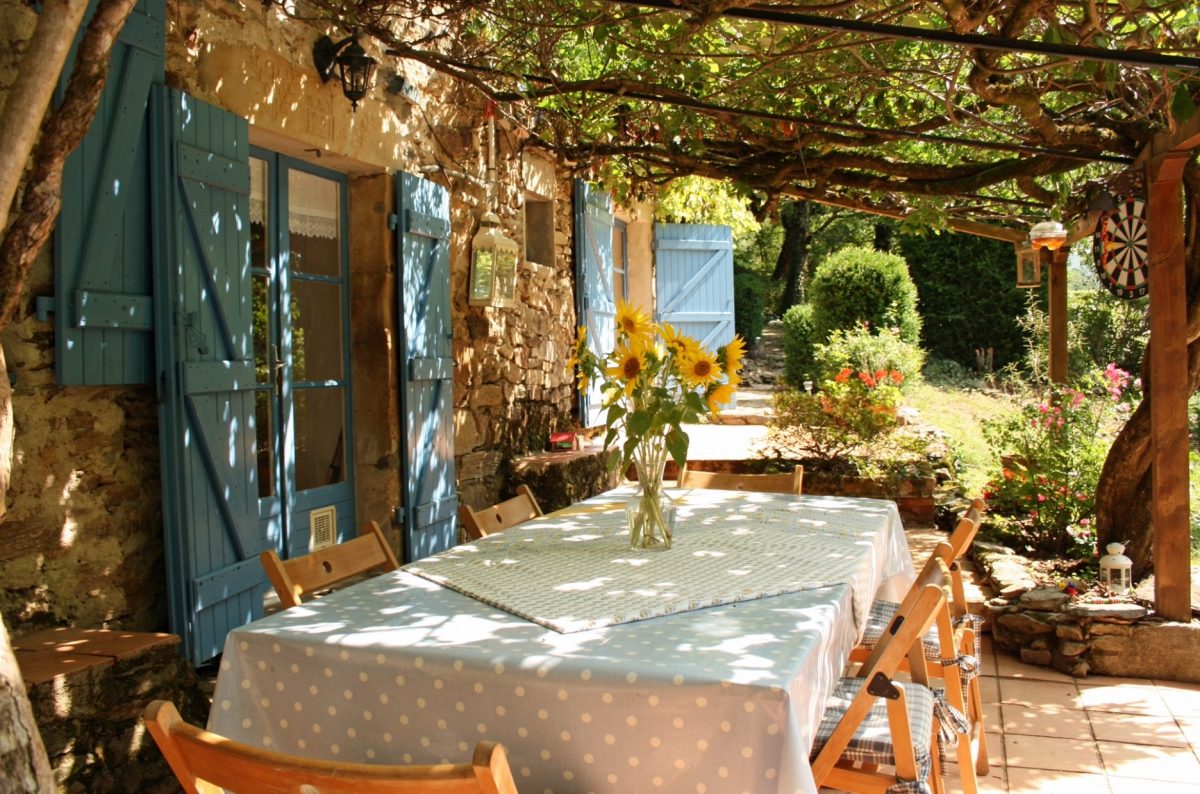
Living In France And Buying French Property
Buying French Property
Decisions you need to make
It’s easiest to look at the process of buying a French property in simple, easy stages. The good news is that the whole system is relatively straight forward and well regulated. When you decide to buy a house in France the first stage is to work out exactly where you are looking and what you are looking for.
- Start by deciding on your budget as this may well rule out certain regions of France as the rule of thumb is that property gets more expensive the further south you go. There are always exceptions to any rule and inland village houses still represent exceedingly good value for money. When considering your budget remember that advertised house prices include the agency fee but not the notaire’s fee which are between 7%-10% of the purchase price (the higher percentage being charged on the cheaper properties).
- Deciding on where to buy may not be a problem if you have been holidaying somewhere you have fallen in love with but for many people all of France is tempting. If the limitations of your budget are not making the decision easier for you then it is important to think about the lifestyle you are expecting when you buy your French home. Do you want isolation or sophistication, a hot or mild climate, access to beach, lakes or rivers, access to mountains or easy walking countryside, easy access to return to U.K.
- What type of property is going to suit your needs, rural, village or town setting, house, apartment or income producing business, how many bedrooms, garden size and the condition that suits your DIY skills.
The process of buying your house in France
This is best looked at in simple stages.
- The French property viewing trip which the team at Healey Fox will arrange for you once you have decided on the French properties you would like to see. Our partner French Estate Agents will meet you in their office and show you your chosen properties and probably a few more too. After listening to your feedback they may come up with that ‘surprise’ house which may prove to be just what you wanted.
- Finances. If you are planning on raising a mortgage for the purchase of your French property it could be wise to investigate a French mortgage. There can be real advantages in obtaining a mortgage from a French bank rather than re-mortgaging your U.K. property. It is also wise to look into currency exchange at this stage in your search for a French property.
- Making the decision. Once you find the house you want to buy our advice is to “sleep on it”. When you are certain that it is right to you it is sensible to talk to our agent about making an offer. He or she will be able to advise you on what offer is likely to be acceptable and will negotiate on your behalf. You may need to make a formal offer and it is important to make sure that any conditions you need met, before you would be prepared to buy the property, are contained in this offer. Once a formal offer is accepted by a vendor it becomes contractual. Our agent will advise you on all of this.
- Compromis de Vente. This is the first contract which you will sign during the buying process. Normally our French partner estate agent will have this contract in pre-printed and pre-translated form. It is again important that any conditions which you wish to impose on your purchase of the property are listed in this contract, such matters would be notification of your need to acquire a French mortgage, possible planning permissions etc. This contract will also state the date of completion of the sale, however, this is flexible and cannot be assumed to be firmly fixed. The Healey Fox partner agent will keep you in touch with the progress of the sale/purchase.
- Cooling off period. Once the Conpromis de Vente is ready to be signed you may either do so while in France or it will be sent to you by registered post or email in the U.K. there is a 10 day cooling off period for the purchaser which starts from the first working day after you receive the contract. During this time you are free to withdraw from the sale without loss of your deposit. You will need to send a registered letter to the Estate Agent or the Notaire to notify them of your decision.
- Acte de Vente. Our agent will inform you of the date for signing the final contract. You may have decided to go to France for this event or to have organised a Power of Attorney allowing a clerk in the Notaire’s office to sign on your behalf. One thing you must not forget is to ensure that the finances for the purchase are with the Notaire by the date for signing the final contract. Once the contract is signed the Notaire will give you an Attestation which is a certificate to prove you are the new owner and will be needed for utility companies, etc.
- Time to celebrate. You are now the owner of a French property. Hopefully it’s been simple, straight forward and pleasurable.

Living in France
Things you need to know about living in France
Firstly, you really must consider learning the language. Some English speaking people manage to get away with very little French by moving into one of the more popular ex.pat. areas but unlike Spain, even in these parts of France, a knowledge of French is pretty essential. Many people find it easier to learn French when they are living in France so don’t get dispirited if evening classes in the U.K are not working for you but do enrol on classes as soon as you arrive in France. Not only will you make quicker progress with the French language but you will also meet other foreigners new to the area.
You are likely to miss family and friends initially and at times you may wonder if you made the right decision to move out of the U.K. However, if you have wisely chosen a property with ready access to airports or other means of travel back to the U.K. those feelings of being lost abroad will soon pass especially if you make the effort to meet your neighbours and ‘be seen’ in and around.

The Facts Of Life In France
- Healthcare. Anyone from the U.K. who is resident in France by the end of 2018 will be entitled to the same healthcare benefits as all French people. To start the process of obtaining healthcare you will need to make an appointment with Caisse Primaire d’Assurance Maladie to obtain a Carte Vitale. If you are in receipt of a state pension you will need to obtain a form S1 by applying on line to the HMGov website or in writing to HMRC. As a retiree you need to be resident for 3 months before you can apply for healthcare and as with French retirees, your income from pensions is viewed as earned income and you will pay social charges on that income. At the present time that is 8% on any income over €9,600. If you are living and working in salaried employemt in France your employer should take care of your registration for healthcare and you will pay social charges from your income towards this. If you set up your own business you will be registered for healthcare via URSAFF.
- Register your residency. To register that you are resident in France you need to visit the local tax office although you will not be eligible to complete a tax return until the May following your arrival in France. It is vital that anyone becoming resident in France in 2018 ensures that they are registered for Tax in France before the end of 2018 to ensure that their healthcare protection is in place before March 2019.
- Education in France is compulsory and free for all children aged 6 – 16. Children are also entitled to free schooling from the age of 3 in a maternelle school. Crèche facilities are provided for infants from two and a half months and although mainly free there may be a small charge for those parents with high incomes. Most children attend their local state school although in some areas there are some private schools.
- Family benefits. It is currently possible for families to claim child benefit in France. (It is not clear whether this will continue after March 2019). Benefits are claimed through CAF (Caisse des Allocations Familiales). Child benefit, additional payment for rentrée (return to school) and housing benefit are all currently available.
- Pensions. U.K. government pensions are not taxable in France whereas private pensions are. The good news is that tax levels in France are lower than in the U.K. However, unlike in the U.K. there are social charges to pay on any pension income over €9,600.
- Driving in France. You can use your U.K. registered car for the first six months after you arrive in France. You can then choose to register your U.K. car in France by obtaining a Carte Gris and new number plates which will necessitate a visit to the Marie or you could buy a new or second hand French car. It is worth noting that nearly everyone in France drives a French manufactured car and servicing and breakdowns are much easier and cheaper for these cars
- Moving your pet to France. It is wise to check with your local vet and on the DEFRA website to ensure you meet current regulations, all dogs and cats will need to be microchipped, have a rabies injection and a EU pet passport. Finally your pet will need a blood test just before you leave for France.Search For Property For Sale In France On Healey Fox
To the best of our knowledge, the information contained herein is accurate and reliable as of the date of publication; however, we do not assume any liability whatsoever for the accuracy and completeness of the above information.




